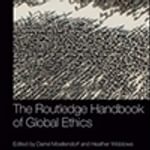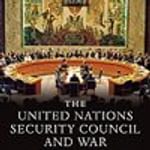The Oxford Martin Programme on
Human Rights
for Future Generations

This research programme ran from 2013 - 2019 and the following pages are an archived resource. More information can be found on the website of the Faculty of Law in the University of Oxford.

the project
We are designing a new framework for human rights to deal with the unprecedented and unpredictable factors affecting the welfare of future generations.
Challenges such as poverty, environmental change and armed conflict require international cooperation on an unprecedented scale. Our actions on these issues will affect the welfare of future generations and those who do not have a voice. Yet there are serious questions regarding the adequacy of existing frameworks to face these challenges. This project aims to advance a new framework built on ethical, legal and political dimensions that will help translate theory into real legal and policy solutions on these issues.
We have formed a unique collaboration of experts in law, politics and ethics to consider the ways in which ethical dilemmas can be translated into real legal and policy solutions. Our approach goes beyond the status quo to incorporate a systematic analysis of policies in which justice and human rights demand certain allocations of resources, especially considering demographic and geographical change in global populations. The project crosses boundaries, not just disciplinary but also among different stakeholders, by facilitating a dialogue between academics and those who are more practically and politically engaged.
- Poverty: we are researching whether a human rights paradigm offers a meaningful foundation for addressing poverty, in particular for the relationship between current and future generations. By drawing on ethics, law, politics and international relations, we aim to create a human rights framework that addresses what moral and legal claims and duties surround poverty, whether the moral claims of those facing poverty extend beyond the existing legal human rights framework, and what role different agents should have in the protection of people from poverty.
- Climate change raises intergenerational questions, as environmental policies have the potential to increase the extent of human rights protection in the future but also to decrease the protection of human rights in the present. We are addressing these issues, as well as producing a monograph on Climate Justice, and introductory book on Climate Ethics and numerous events to discuss possible approaches to the key challenges.
- Armed conflict: we are focusing on studying normative, legal, and institutional questions that are related to armed conflict. The programme intends to contribute to a better understanding of the contemporary challenges facing armed conflict from a legal and policy perspective. The ultimate objective is to engage in in-depth reflection, based on scientific methods, which is often missing in domains that are constantly evolving in response to current events and are subject to the political pressures.
videos
"Realising human rights in a warming world" with Prof Simon Caney
"Amnesty International and the challenges for human rights" with Kate Allen
How Can Institutional Mechanisms Safeguard for Tomorrow, Today? Part 1
How Can Institutional Mechanisms Safeguard for Tomorrow, Today? Part 2
"Governance, sustainability and future generations: designing institutions with a long term focus" with Prof Simon Caney
What are 'human security' challenges?
What are human rights for future generations?
Development and Conflict
Keep in touch
If you found this page useful, sign up to our monthly digest of the latest news and events
Subscribe

